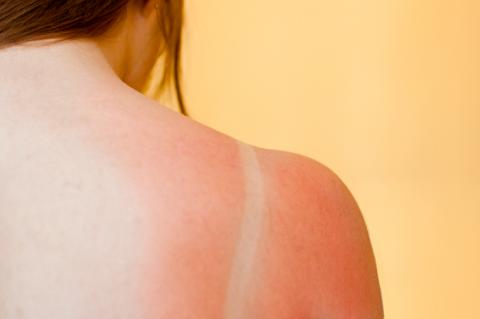
Today I was proud of my training as a Family Physician when I read an article from the Journal of the American Board of Family Practice about melanoma. The article investigated what has been a very unpopular opinion that a minority of physicians has held for quite a few years: melanoma is not as simple as you think, nor is sunshine as dangerous as some dermatologists might tell you.
Sunscreens block UVB radiation and reduce the risk of squamous cell carcinoma, which can be disfiguring but not nearly as deadly as malignant melanoma. Sunscreens were never meant to block UVA radiation. UVA rays don't cause sunburns and were therefore presumed benign. Unchecked UVA radiation instead has other more worrisome effects, including oxidative stress, free radical generation, and the degradation of vitamin D. Vitamin D is one of our best likely protectors against melanoma. Studies indicate that higher Vitamin D levels are associated with thinner tumors at diagnosis and better patient survival time. So sunscreen causes oxidative stress and prevents you from receiving the Vitamin D that would reduce your melanoma risk.
But doesn't lots of sun cause melanoma? Unlike other skin cancers, melanoma is not related to cumulative sun exposure. In fact, melanoma is more prevalent among indoor workers than outdoor workers! Intense sunburn itself may be related to melanoma risk, and is agreed by everyone to be hard on the skin.
Doesn't sunscreen help at all? There is a particular danger with high SPF value sunscreens, as burning is prevented and perhaps a false sense of security conferred. All day in the sun without a burn still gives you lots of UVA radiation. Some studies have shown that daily use of UVA and UVB blocking sunscreen may reduce melanoma risk, but I believe there's a better plan.
What I believe is the wisest course to prevent melanoma, and one I recommend to my melanoma patients: avoid burning (I say that to everyone and recommend barrier protection with clothing or shade protection), but be sure to get 20 minutes of mid-day summer sun daily to as much uncovered skin as you can. Today in Southern Oregon it's warm and balmy as an early summer day. Our sun level isn't high enough to pink up our skin so we won't get any vitamin D from the sun, much as it warms our hearts.
So for vitamin D in the winter, take some D3 (4-5000 i.u. daily) and combine it with Fermented Cod Liver Oil (FCLO). The vitamin K2 in the FCLO (or in any fermented food) protects you by sending calcium, increased with D3 supplementation, to its rightful home in your bones and teeth. And for skin safety in the summertime, don't rely on sunscreen.
